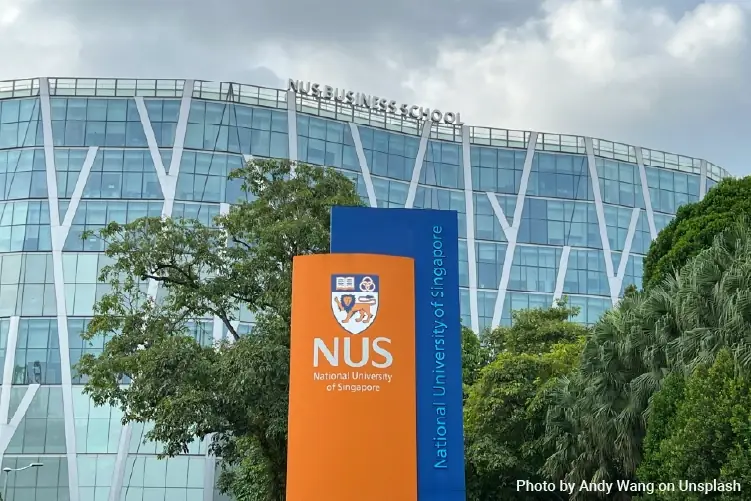7 Useful Tips for Finding Accommodation as an International Student in Singapore

Singapore is calling, and your next big adventure awaits! Deciding to study abroad is thrilling, but figuring out where to live? Not so much. Finding accommodation in Singapore as an international student can be a bit of a puzzle. From knowing where to look to understanding how things work, the process can be overwhelming. But fear not—you’re not alone in this!
This guide is here to make your hunt for the perfect place to live a whole lot easier. Whether you’re envisioning the charm of cozy school halls, the convenience of student residences, the style of trendy shared apartments, or the privacy of a solo studio, we’ve got actionable tips to help you find the right option.
Why Housing is a Big Deal for International Students
Settling into the right accommodation is essential because it's about more than just having a place to stay—it's your base for the next exciting chapter of your life. From meeting new friends to late-night study sessions, your choice of housing is closely tied to how memorable and seamless your experience will be.
Alright, enough of the pep talk. Here are seven super-practical tips to guide you on your housing quest in Singapore.
1. Understand Your Budget (and Stick to It)
Singapore is a vibrant but pricey city, and understanding your budget is step one. Accommodation costs can vary widely depending on the type, size, and location of the property.
Options to fit your wallet
- University Halls: Affordable and close to campus, averaging SGD 550–800 a month.
- Private Apartments or Flats: Great for privacy, typically between SGD 800–2,000 per room, a month
- Shared Room: Splitting rent with roommates can drop costs to SGD 500–1,200 a month.
Ask yourself what you can comfortably afford while factoring in extra costs like utility bills and grocery expenses. Budgeting might not be exciting, but believe us—it’s an essential ally for managing your finances.
Pro tip: Always leave some breathing room in your budget for surprises, like extra utilities fees for air-conditioning (Singapore’s heat is no joke!).
2. Research Neighbourhoods That Match Your Vibe
Every neighbourhood in Singapore has its own personality. Are you a foodie at heart? Love nature parks? Need easy MRT (train) access? Research is your best tool.
Student-Friendly Areas
- Clementi or Buona Vista: Close to National University of Singapore (NUS) and Singapore University of Social Sciences (SUSS), well-connected by public transport, and surrounded by student cafes.
- Newton or Novena: Near Singapore Management University (SMU) and University of the Arts Singapore (UAS), great for city connectivity with a mix of housing options.
- Jurong West: Close to Nanyang Technological University (NTU), with many amenities, food options, and shopping malls.
- Tiong Bahru:Trendy and vibrant, popular among students. Compared to other central areas, Tiong Bahru offers relatively affordable housing options.
- Tampines: Near to Singapore University of Technology and Design (SUTD). Affordable yet lively, with amenities such as shopping malls and a sports hub.
- Punggol: Close to Singapore Institute of Technology (SIT). Modern with scenic waterfront views and excellent amenities.
When selecting accommodation, be sure to consider its proximity to your university, the convenience of transportation options, and the overall vibe of the area.
Not sure where to start? Hop on forums like Reddit, or use apps like Google Maps for commute estimates.
3. Start Looking Early—Like, ASAP
Here’s the deal: The earlier you start, the better your chances. Singapore attracts international students and professionals from around the world, which means housing options can get snapped up in the blink of an eye.
Flats or condominiums:
- The two main choices available in Singapore are Housing Development Board (HDB) flats and condominiums. HDB flats are government housing where most Singaporeans live. They’re the most affordable rental option, offering spacious units without condo facilities like pools or security.
- Use platforms like PropertyGuru, 99.co, or EdgeProp to find rental options that suit your budget and preferences.
- Filter by location, property type, amenities, and budget to make the search process easier.
On-campus housing:
- If you're considering living on campus, check the eligibility criteria specific to your institution.
- Be mindful of application deadlines to secure a spot in student accommodations.
- On-campus housing often provides proximity to classes and access to campus facilities like dining halls and study areas.
Off-campus private student hostels:
- Explore off-campus options like yo:HA, Campus, and Novena Hall which cater to students with fully furnished rooms and flexible lease terms.
- These hostels often include communal spaces for networking and activities, making them ideal for socialising and building connections with fellow international students.
Homestay arrangements:
- Services like homestay.sg, singaporehomestay.org or the Singapore Homestay Network offer housing with local families, providing a more personal and supportive environment.
- Homestay options typically include added conveniences such as daily meals, laundry services, and guidance about local culture and living.
- This option is particularly helpful for students new to Singapore, offering a smoother transition to life abroad.
Pro tip: Prepare your documents ahead of time (ID, student pass, proof of enrollment) so you can seal the deal quickly. Delays might cost you the perfect place!
4. Use University Resources
Check with your university’s housing office or international student services for recommendations—they’re often equipped with valuable resources to help make your housing search much easier.
Student-Friendly Listings: Most universities maintain a database of student-friendly accommodations located near campus. These listings are typically vetted to ensure they meet certain standards of safety, reliability, and affordability. You might find anything from dormitories to off-campus apartments or shared housing options.
Temporary Housing Options: If you're still figuring out your long-term plans, many universities can also help with temporary housing recommendations. Whether it's short-term dorm stays, hostels, or partner organisations offering transitional housing, this can provide a safe and reliable place to stay while you get settled.
Connect with Other Students: University housing offices or student services may also facilitate connections with other students looking for roommates or shared housing opportunities. Joining these networks is a great way to meet like-minded individuals while keeping costs down.
This ensures you have reliable and safe options, plus the chance to connect with other students for potential shared housing!
5. Hop on Social Media & Connect with Your Community
You’re not alone! Thousands of international students are in the same boat, so why not tap into that amazing sense of community?
- Join Facebook groups like FindYourRoomInSG or Singapore Rental Rooms For Students .
- Share your search on Instagram, Lemon8, or local WhatsApp groups—someone might know a hidden gem.
- Check out forums like Reddit or Rednote (Xiaohongshu) for recommendations and insider tips.
People love to help, and personal referrals often lead to safer, better deals. Plus, these groups are perfect for making pre-arrival friends!
6. Investigate Amenities Like a Pro
Once you've shortlisted a few options, think beyond the walls of your room. Does the property cater to your lifestyle?
- Essentials: Air-conditioning, laundry facilities, WiFi setup (trust us, you need good WiFi for those Zoom calls!).
- Conveniences: Grocery shops, cafeterias, gyms, or co-working spaces nearby can redefine convenience.
- Verify in Person: Take the time to view the property in person to ensure the amenities match what's advertised online and that the space feels right for you.
Remember, minor conveniences can make daily life more enjoyable, so don’t brush them off as trivial!
7. Don’t Skip the Fine Print
Hear this loud and clear—always, always read the lease terms and conditions carefully before committing.
- Check what’s included in your rent. Are utilities extra? Is a cleaning fee buried in there somewhere?
- Look out for the deposit refund policy. A standard deposit is 1–2 months’ rent in Singapore.
- Be vigilant for red flags like vague landlord communication or unverified agents.
- Don’t forget to read reviews on the online portal to get insights from previous tenants about the property and landlord.
When in doubt, seek advice from more experienced students, friends, or even your university’s support office.
Everything Comes Together Here
Finding accommodation in Singapore as an international student might seem like a daunting task, but with the right approach, it can be an exciting part of starting your next chapter.
From planning your budget to exploring charming neighbourhoods, each step brings you closer to your ideal home-away-from-home. And remember, there’s a community of students just like you ready to offer tips, tricks, and even friendship.
Still feeling unsure? Don’t worry—we’ve got your back! If you want personalised advice, connect with us, and we’ll help you every step of the way. Your Singapore housing adventure just got a whole lot simpler!



